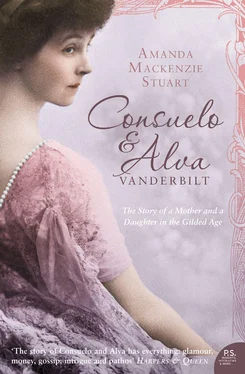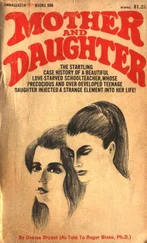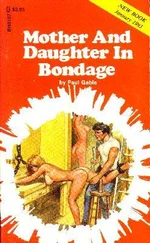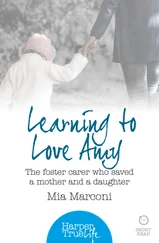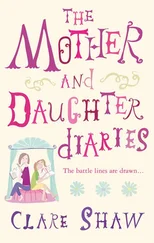There was some delay in the negotiations until Consuelo proposed that the final sum should be split between them ‘in equal shares, at my request’. 41 It is interesting to note, in view of the later charges of coercion, that Consuelo herself came up with the proposal that finally unlocked the problem, for failure to find a compromise could have resulted in the engagement coming to a premature end. She may have felt, however, that matters had proceeded too far for her to back out. Later, Blanche Oelrichs remembered Newport servants gossiping that Consuelo cried all night at the conclusion of the settlements between the Duke and her father. ‘What were these settlements that tied people up in them against their will? For what did they barter this mysterious something which they cared for enough to cling to with tears? I put a few leading questions to my sister, a great friend of Consuelo’s … to be angrily told that if I went on playing with “street children” I would never get “anywhere”.’ 42
After the first flush of enthusiasm, the attitude of the American press became much more ambivalent, as if the editors were responding simultaneously to a sentimental desire to see the engagement as a love match and to widespread cynicism about the Duke’s motives. In the World, which had both a political agenda and a wide female readership, both interpretations of the story appeared on the same page. Consuelo wrote later that the Duke went off on a tour of America shortly after the engagement was announced, but this is not true. Soon afterwards, Oliver Belmont arranged a coaching trip to Tuxedo for Consuelo, the Duke, Alva and the Jays, which lasted a few days. While the Duke was still – to all intents and purposes – Alva’s guest, criticism by the flock of journalists who followed him was muted. On the return of the coaching party to New York, however, this changed when the Duke took rooms at the Plaza Hotel. From the moment that he ceased to be Alva’s house guest the press declared open season. The Duke was quite inexperienced in dealing with this kind of publicity, accustomed to a far more deferential press in England. At the same time, however, he clearly lacked Alva’s instinctive grasp of publicity as an instrument of social power. Shortly after the engagement was announced, for example, he let it be known that the marriage had been ‘arranged by his friends and those of Miss Vanderbilt’, 43 a most unfortunate turn of phrase which would be held against him for a very long time.
The Duke cannot be held responsible for all criticism, however, for some of it was politically motivated. Joseph Pulitzer at the World , in particular, had a longstanding objection to the manner in which ‘our vulgar moneyed aristocrats’ were prepared to buy ‘European gingerbread titles’ 44 for their daughters. He thought it was deeply unpatriotic and objected just as strenuously to the European nobles who came hunting for American bounty. The day after the coaching trip, when the Duke was joined from England by his cousin Ivor Guest (who would be his best man), they departed for a short excursion to look at the famous blood stock of Kentucky, followed by a bevy of reporters. Such a trip does not seem wholly unreasonable given that the Duke had been staying with the Vanderbilts for several weeks and that Mrs Vanderbilt was on the point of moving into the new house at 72nd Street and Madison Avenue from which Consuelo would be married. Indeed, he may have felt that his presence would have been a burden at such a time.
The Duke must soon have regretted the decision to strike out alone, however, for the World in particular was determined both to poke fun and to show him in the worst possible light. In common with other newspapers, it particularly objected to the fact that he measured just over five foot two inches and that Consuelo stood taller than him at five foot eight. He was accused of discourtesy at a Kentucky racecourse when he picked up a glove; he showed excessive enthusiasm for Kentucky whisky; and in Louisville he was spotted with various sporting friends, at a performance of a high-class comedy “The City Club of Gay Paree” at the Buckingham Theatre. At this point, the World ’s reporter thought he had a scoop, maintaining that the Duke had been spotted giving ‘the glad hand and the cheerful word’ to Miss Sophie Erb who had played the role of Tottie Coughdrops. 45 Miss Sophie Erb told the reporter that she had been ogled throughout her appearance as a living picture in ‘The Birth of Venus’ by a sporty-looking man who later sent word that he was the Duke of Marlborough and asked her for supper – an invitation she indignantly refused saying that she didn’t care if he was the Prince of Wales. Since ‘sporty-looking’ is an adjective that no-one else has ever applied to the 9th Duke of Marlborough, it seems likely that he was the victim of a prank, but the Tottie Coughdrops incident was soon picked up by other more sober newspapers including the New York Tribune . 46
The World then proceeded to print an exceedingly unflattering profile of the Duke, describing him as ‘no credit to his tailor … hollow-chested … with queer hats … very short of stature and some people say of money’, 47 and was unable to understand why this had no influence over certain young ladies who, after his return to New York, took to hanging round the foyer of the Plaza Hotel. ‘They want to speak to the Duke, to touch him, to cut off a piece of his coat tails or in some other way to obtain a souvenir of the affianced husband of Miss Vanderbilt. The faithful attendants with difficulty preserve the amiable and ingenious duke from their clutches,’ wrote the World on 15 October. Almost certainly acting on Alva’s advice, the Duke sent for a reporter from the World on his return from Kentucky, his trip having lasted no more than five days. In an attempt to set the record straight he said rather plaintively: ‘They’ve told so many lies about me that really I hardly know myself any more. I’ve become a sort of stranger to myself don’t you know … You Americans seem to like to amuse yourselves at the expense of the English, isn’t that so?’ He offered to tell the reporter anything he would like to know about arrangements for the wedding; but his hazy grasp of the wedding details did little to help his case. He was then reported as having asked the journalist: ‘Why are you people are so fond of interviews with Englishmen? I suppose your American men never give interviews?’ When told that, on the contrary, they were very fond of being interviewed, the Duke was said to have replied incredulously: ‘No, really? They can’t be such flats.’ 48
No sooner had the readership put the Tottie Coughdrops affair behind it than the Duke of Marlborough was arrested for ‘coasting’ on a bicycle in Central Park with his feet on the handlebars. This might be considered rather to his credit, but not by Policeman Sweeny. Said by his admiring colleagues to be capable of ‘arresting anything’, Sweeny had already ordered the Duke off the grass and moved him on, when, to his horror, the felon re-appeared ‘scorching’ down Block House hill, his feet elevated on the handlebars of his bicycle at a rate of at least twenty miles an hour. Policeman Sweeny marched the Duke to the police station, where he confessed his ignorance of park regulations and pointed out that there was no sign warning innocent scorchers that they were in breach of the law. There was considerable embarrassment when the Duke’s identity was discovered, but since a crowd had gathered, ‘it was too late to recede’. 49 The distinguished visitor was reprimanded, ‘discharged’, and proceeded on the offending bicycle back to the Plaza. This time the story appeared in The Times in London, though all mention of feet on handlebars was respectfully omitted.
Читать дальше
